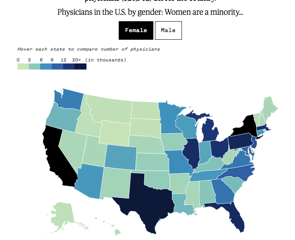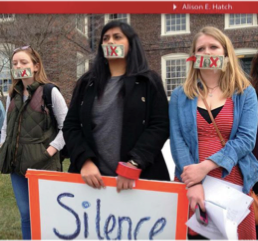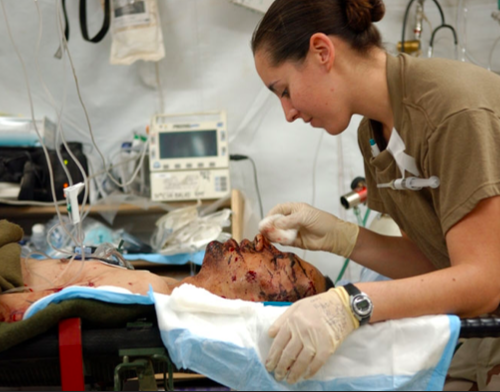Silent Survivor featured in Book of the Month!!
Exciting news: Silent Survivor was featured in Book of the Month.
dshlian / News, Silent Survivor / #MeToo, #Militarysexualassault, #mystery, #Sexualassault, #Thriller, medical mystery thriller /
Exciting news: Silent Survivor was featured in Book of the Month.
dshlian / Deborah Shlian, Deborah's Blog, Musings, Silent Survivor / #MeToo, #Sexualassault /

In researching the subplots in my newest medical mystery/thriller Silent Survivor, I spent hours reading stories of veterans who had experienced military sexual trauma and college students who had been sexually assaulted.
Of course I was aware that many women in various professions – acting, corporate, government, for example- have experienced sexual harassment and even assault.
But frankly, as a physician myself, I was surprised to find that medicine has yet to have its #MeToo moment.
According to NBC News, a 1995 study found that more than half of all women in academic medicine said they had been sexually harassed.
Two decades later, Dr. Reshma Jagsi, professor of the University of Michigan and director of the school’s Center for Bioethics and Social Sciences in Medicine, did her own survey of top physician/scientists. Hoping for progress, she was disappointed to find that 30% of female doctors still report being the victims of sexual harassment. Only 4% of men reported the same.
DeFilippis in a JAMA oped, stated that “to be a women in medicine, whether in training or in a senior role, includes the unique challenge of facing sexist behavior from patients and even colleagues on a regular basis in an already stressful work environment.”
In a 2018 Medscape survey of 3700 physicians, more than one in four (27%) said they had experienced at least one incident of being sexually harassed within the last three years. Yet only 40% reported any of these incidents. Less than 25% of their reports resulted in any investigation.
“The Medscape report underscores the need to take on the issue of harassment within the medical community and ensure that those who are victimized will be heard,” said Hansa Bhargava, M.D., a pediatrician and Medscape medical editor.
Last year (2017) was the first time that the majority of medical students across the country were female. Still, in terms of practicing doctors, women are still a minority (326,902 female doctors compared with 623,054 male doctors)
Up to now there has been a culture of silence in medicine. Women interviewed said fear of speaking up could cost coveted recommendation letters and negatively influence career progress. Sadly, medical students who experience sexual harassment have the highest rates of suicide.
One resident stated that “keeping quiet about this helps no one.” This is precisely the message I’d hoped to promote in my novel Silent Survivor and one I hope will resonate in my own medical profession.
dshlian / Deborah Shlian, Deborah's Blog, Silent Survivor / #collegerape, #MeToo, #Sexualassault /

Reviewers have praised Silent Survivor as a page-turner thriller that deals with several timely issues – among them college rape. Unlike military sexual assault which is unambiguous in the sense that there is generally no issue about whether the sex is consensual, rape among college students often becomes a “she said, he said.”
In 2014, Federal investigators investigated whether 55 colleges and universities in 27 states and in the District of Columbia illegally handled sexual violence and harassment complaints.
A 2015 academic studyreported that during their freshman year of college 15 percent of women are raped while incapacitated from alcohol or drugs.
That’s one of the debate stoppers about rape on campus as too many people today still consider sex with an unconscious drunk girl part and parcel of the college experience.
As part of research for her 2018 book about sex in college “American Hookup: The New Culture of Sex on Campus,” Lisa Wade visited 24 colleges. She describes an accepted culture dominating college campuses that promotes drugs, excessive alcohol imbibing and sexual hookups – a culture that can make it difficult for some to argue against the narrative of girls “asking for it” and boys not being able to control themselves.
As a former Medical Director of Primary Care at UCLA’s Student Health Service in the 1990’s, I can certainly attest to many students feeling undue pressure to drink and have sex even when they preferred not to – especially those in sororities and fraternities.
I had hoped that times had changed. But if Wade is correct about today’s pervasive hookup culture, there is a greater need than ever to have a national debate about ending it.
For those who tend to see ambiguity in the above “she said, he said” situations, no one should doubt the guilt of a former Stanford University swimmer who carried an unconscious women behind a dumpster and sexually assaulted her. His six-month jail sentence produced appropriate national outrage.Equally outrageous, during the trial the defense still found a way to attack the victim’s character, to exalt the perpetrator’s athletic merits, to spin it as “no big deal”.
According to Wade, in the culture of sex dominating college campuses today, status is what sex is all about and that status gives athletes sexual access. In her column The Conversation in Business Insider in 2017 she stated that “…athletes are more likely than other students on campus to identify with hyper-masculinity and to accept ‘rape myths’ to justify sexual assaults”.
Again if this is true and my experience on one college campus validates her assertion, then the national conversation we need to have about drinking, drugs and the hookup culture must include discussion about the facts around perceived social status related to having sex with athletes.
In Silent Survivor, I wanted to create subplot that would encourage readers –especially those in book clubs – to open up a dialogue about consent and rape on college campuses, to change attitudes with the hope that in 2018 and going forward “she said, he said” will no longer be ambiguous.
Appreciate your comments here.
dshlian / Deborah Shlian, Deborah's Blog, Silent Survivor / #MeToo, #Militarysexualassault, #Sexualassault, #SilentSurvivor, military, thriller /

Too often a taboo subject, military sexual assault is integral to the story in Silent Survivor.
Before I began plotting this novel, I created my protagonist Mackenzie (known as Mac to her friends) Dodd. I knew I wanted Mac to be a strong woman, but I also wanted her to be a veteran of the Middle East wars so she could investigate the mystery of the illness fellow vets were experiencing on returning stateside. Thus, Mac became an ex-Army nurse who’d spent time in Iraq.

That’s when I started reading about the experiences of women in today’s military. The more I searched, the more articles I found focusing on military sexual trauma (MST), a situation that unfortunately has taken decades to gain public attention.
Today, Veterans Affairs (VA) defines MST as “psychological trauma, which in the judgment of a VA mental health professional, has resulted from a physical assault of a sexual nature, battery of a sexual nature, or sexual harassment which occurred while the Veteran was serving on active duty.” The VA further defines sexual harassment as “repeated, unsolicited verbal or physical contact of a sexual nature which is threatening in nature”
At least nine separate bills (like the one proposed by my fictitious Congresswoman Cooper) have been introduced in Congress by a bipartisan mix of senators and representatives, proposing a range of fixes.
According to a report filed by the Department of Defense’s Sexual Assault Prevention and Response Office in March, 2010, there were 3,158 sexual assault complaints in that year alone. The Pentagon acknowledged that given the underreporting of MSTs, that number probably accounts for about 13.5 percent of the estimated 19,000 incidents that occurred that year. Only 20 percent of reported cases went to trial, which represent half the rate of the civilian justice system.
In February, 2011, 25 female and 3 male vets who were sexually assaulted while wearing the uniform filed an abuse lawsuit (Cioca v. Rumsfeld) alleging that Robert Gates and his predecessor, Donald Rumsfeld, had failed to curtail widespread rape in the military. However, within a month, the judge, dismissed the case.
A 2012 study of a subset of 213,803 Iraq and Afghanistan veterans of veterans diagnosed with PTSD from April 1, 2002, to October 1, 2008, found that 31 percent of the women and 1percent of the men screened positively for MST.
Contributing to PTSD suffered by survivors of military sexual assaults is the harassment of victims who make an official complaint. Ninety percent of them are eventually involuntarily discharged. Today women in the military are still more likely to be raped by fellow soldiers than they are to be killed in combat.
So, these are the factual stats that led me to develop Mac’s character – an Iraq vet who’d been raped by her commander and who’d been given an honorable discharge in exchange for her silence about the assault.
Committed to silence, Mac starts a blog as an anonymous Silent Survivor. She invites fellow vets to share their stories. Many of the posts that I included in the book are based on actual stories I’d read about on the web. Real life veterans who’d been raped or sexually harassed and no one was ever held accountable.
I dedicated this book to all the survivors who understand that only by exposing the truth can secrets lose their power.
On July 12, 2017, Republican representative Jaime Herrera Beutler and Democratic representative Niki Tsongas introduced HR 3209, Protecting Military Honor Act, in the House of Representatives. Senator Richard Blumenthal introduced the bill in the Senate.
This bipartisan proposed law would make it harder to discharge traumatized sexual assault survivors for “personality disorder” or other mental health conditions that might not qualify them for disability benefits and block them from health care covered by the VA. It would expand current protections intended to prevent combat veterans from being erroneously discharged for conditions resulting from trauma to include sexual assault victims – who, studies show, are even more likely than combat veterans to have PTSD.
This bill would also strengthen legal protections against retaliation for reporting illegal conduct, including sexual assault and sexual harassment.
Until three years ago, the Military Whistleblower Protection Act had protected not a single sexual assault survivor. Yet, this has been their only recourse if they believe they experienced reprisals after reporting their assault. The Protecting Military Honor Act would bring the Military Whistleblower Protection Act standards in line with best practices and standards for civilians, thereby removing barriers to reporting sexual assault.
Apparently this bill was referred to the subcommittee on Military Personnel where it still sits. According to one article I found online the prognosis for this bill being enacted is only three percent.
I hope you all agree that this is unacceptable.
Bottom line: My hope is that perhaps with pressure from readers of Silent Survivor, Congress will eventually pass a law that will protect these women and men.